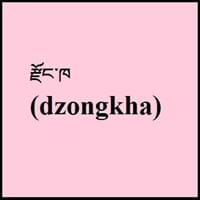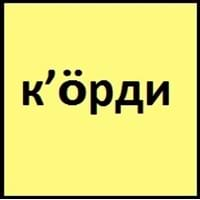Dzongkha and Kurdish
Countries
Bhutan
Iraq, Kurdistan
National Language
Bhutan
Azerbaijan, Georgia, Iran, Iraq, Syria, Turkey
Second Language
India
Not spoken in any of the countries
Speaking Continents
Asia
Middle East
Minority Language
India
Not spoken in any of the countries
Regulated By
Dzongkha Development Commission
Not Available
Interesting Facts
- Standard romanization of the Dzongkha language is Roman Dzongkha.
- The vocabulary in Kurdish is of Iranian origin.
- In the middle East, Kurdish is the fourth largest ethnic group.
Similar To
Sikkimese Language
Farsi Language
Derived From
Tibetan Language
Not Available
Alphabets in
Dzongkha-Alphabets.jpg#200
Kurdish-Alphabets.jpg#200
Scripts
Dzongkha Braille, Tibetan Braille
Arabic, Cyrillic, Latin
Writing Direction
Not Available
Right-To-Left, Horizontal
Language Levels
Not Available
Time Taken to Learn
Not Available
Hello
Kuzoozangpo La
Silaw
Thank You
Kaadinchhey La
Sipas
How Are You?
Ga Day Bay Zhu Yoe Ga ?
Tu çawa yî?
Good Night
lek shom ay zim
Şev xweş
Good Evening
Not Available
Evare baş
Good Afternoon
Not Available
Nee-wa-rowt bash
Good Morning
Not Available
Bayanit bash
Please
Not Available
Bê zehmet
Bye
Log Jay Gay
Be xêr çî
I Love You
Nga cheu lu ga
Ez te hez dikem
Excuse Me
Tsip maza
Bê zehmet
Dialect 1
Laya
Northern Kurdish
Where They Speak
Bhutan
northern Iraq, northern Syria, northwest Iran, southeast Turkey
Dialect 2
Lunana
Central Kurdish
Where They Speak
Bhutan
Iraq, Kurdistan Province of western Iran
Dialect 3
Adap
Southern Kurdish
Where They Speak
Bhutan
Eastern Iraq
How Many People Speak
Not Available
Total No. Of Dialects
Not Available
Speaking Population
Not Available
Second Language Speakers
Not Available
Native Name
རྫོང་ཁ (dzongkha)
Kurdí / کوردی / к’öрди
Alternative Names
Bhotia of Bhutan, Bhotia of Dukpa, Bhutanese, Drukha, Drukke, Dukpa, Jonkha, Rdzongkha, Zongkhar
Not Available
French Name
dzongkha
kurde
German Name
Dzongkha
Kurdisch
Pronunciation
Not available
Not Available
Ethnicity
Ngalop people
Kurds
Origin
17th Century
16th century CE
Language Family
Sino-Tibetan Family
Indo-European Family
Subgroup
Not Available
Indo-Iranian
Branch
Tibeto-Burman
Not Available
Early Forms
No early forms
Not Available
Standard Forms
Dzongkha
Kurdish
Signed Forms
Not Available
Not Available
Scope
Individual
Macrolanguage
ISO 639 6
Not Available
Not Available
Glottocode
nucl1307
kurd1259
Linguasphere
No data Available
58-AAA-a
Language Type
Living
Living
Language Linguistic Typology
Not Available
Subject-Object-Verb
Language Morphological Typology
Not Available
Not Available
All Dzongkha and Kurdish Dialects
Most languages have dialects where each dialect differ from other dialect with respect to grammar and vocabulary. Here you will get to know all Dzongkha and Kurdish dialects. Various dialects of Dzongkha and Kurdish language differ in their pronunciations and words. Dialects of Dzongkha are spoken in different Dzongkha Speaking Countries whereas Kurdish Dialects are spoken in different Kurdish speaking countries. Also the number of people speaking Dzongkha vs Kurdish Dialects varies from few thousands to many millions. Some of the Dzongkha dialects include: Laya, Lunana. Kurdish dialects include: Northern Kurdish , Central Kurdish. Also learn about dialects in South American Languages and North American Languages.
Dzongkha and Kurdish Speaking population
Dzongkha and Kurdish speaking population is one of the factors based on which Dzongkha and Kurdish languages can be compared. The total count of Dzongkha and Kurdish Speaking population in percentage is also given. The percentage of people speaking Dzongkha language is Not Available whereas the percentage of people speaking Kurdish language is 0.31 %. When we compare the speaking population of any two languages we get to know which of two languages is more popular. Find more details about how many people speak Dzongkha and Kurdish on Dzongkha vs Kurdish where you will get native speakers, speaking population in percentage and native names.
Dzongkha and Kurdish Language Codes
Dzongkha and Kurdish language codes are used in those applications where using language names are tedious. Dzongkha and Kurdish Language Codes include all the international language codes, glottocodes and linguasphere.





